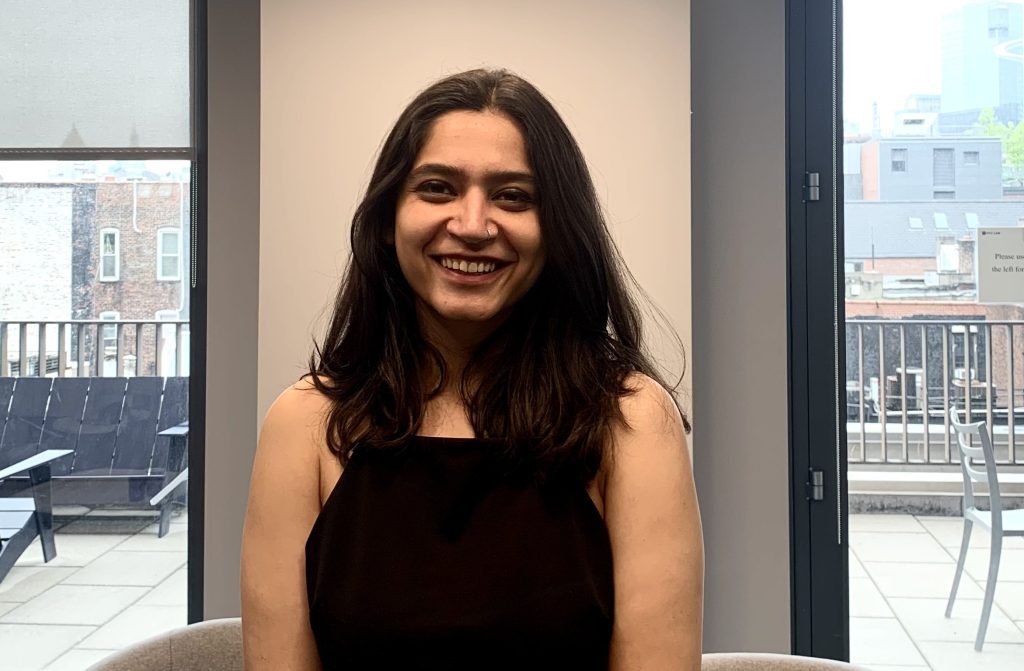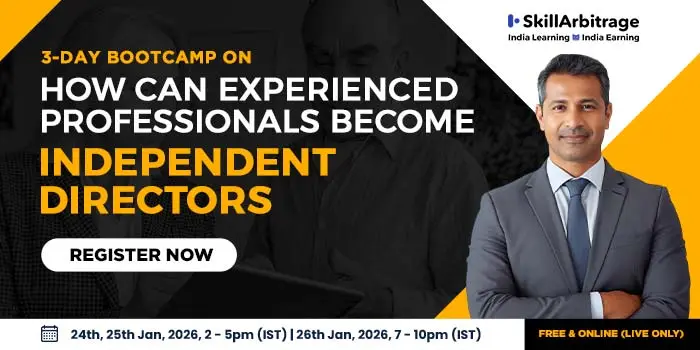This interview has been published by Anshi Mudgal and The SuperLawyer Team
From completing your B.B.A LL.B from Symbiosis to pursuing an LL.M. at NYU, how has your academic journey influenced your perspective on law and policy in a global context?
What began as a spontaneous decision to pursue law gradually evolved into a conscious and enduring passion. Studying law taught me to view it not merely as a fixed framework, but as an ever-evolving dialogue across jurisdictions. At Symbiosis, I built a strong foundation in core legal principles within the Indian context, and later, my time at NYU shaped and broadened my entire perspective about it.
My motivation to pursue a post-graduation degree was a bit different from a lot of students out there. After nearly eight years of work experience, I decided to pursue my LL.M. at NYU; not as a break, but as a deliberate step to step back, reflect, and re-engage with law in a global classroom. That year was transformative. That experience allowed me to appreciate how legal systems can be both deeply interconnected and strikingly different, particularly in the areas I focused on; technology governance, environmental and energy policy. I believe that it also instilled in me the belief that a lawyer today must not remain confined within national borders or existing judgments, but should be ready to question, reinterpret, and challenge what they encounter at every step. I am also convinced that cultural context significantly shapes the way law is interpreted and enforced. Hence, my academic path enabled me to learn law in a way that extends far beyond textbooks.
What inspired you to specialize in environmental and energy policy, with a focus on emerging technologies, during your Master’s at NYU? How did that experience enhance your understanding and practice of these areas?
The real catalyst for my interest came during my time with the Cambridge Centre for Alternative Finance at the University of Cambridge. While researching the sustainability challenges of crypto-assets, I realized that what seemed like a niche question- whether blockchain-based assets could ever be environmentally sustainable- was in fact a window into a much larger set of issues around climate change, sustainable development, and the governance of emerging technologies. Over those nine months, I found myself asking bigger questions: how do we balance innovation with responsibility, and what role should law and policy play in steering that balance?
When I decided to pursue further study, I chose the U.S. very intentionally. It has been a leader in both clean technology and regulatory innovation, and I knew that immersing myself in such an environment would challenge me and give me the global perspective I needed. NYU was the natural choice because of its emphasis on international and interdisciplinary learning. At NYU, seminars and courses such as Environmental & Energy Law Colloquium, and Law and Global Governance, allowed me to engage with both theoretical and practical dimensions of these challenges. I learned from professors who are at the forefront of global policy debates and worked alongside peers who brought perspectives from every continent. These interactions helped me see the intricate linkages between technology governance and environmental goals in a way that was both global and deeply contextual.
That experience did more than just enrich my knowledge; it sharpened my conviction. I came away believing that solving climate and energy challenges will require not only technological innovation, but also robust legal governance frameworks that can adapt to the pace of change. It was at Cambridge where the spark was lit, but it was at NYU where that spark turned into a sustained commitment to work at this intersection.
Early in your career, what were some of the most formative experiences, and how have you integrated those lessons into your professional practice?
My most formative years were the initial three years, which were spent as a litigating lawyer under the mentorship of Mr. Anupam Srivastava (now Senior Advocate). For those three years, I had the privilege of working on a wide spectrum of matters across the High Court of Delhi, ranging from high-stakes political cases to civil disputes and recovery suits. Those experiences shaped me into the lawyer I am today. The environment was demanding yet enriching; drafting petitions, appearing before different courts, and learning to think on my feet. I entered litigation with stage fright, but my seniors’ trust and belief in me from the very first day when he handed me a file and asked me to argue before a registrar, is something that helped me as a young lawyer. Today, when I look back, that moment and many similar ones in those three years helped me shed my fear and find my voice as an advocate.
I believe that the lessons I gained from my mentors and seniors during those years have stayed with me throughout my career. The discipline of drafting in litigation helps me today when I negotiate and draft million-dollar contracts or company-wide policies at a Fortune 500 IT distribution company. The advocacy skills I mastered in court helped me adapt seamlessly at NYU, where the Socratic method requires you to engage, challenge, and defend ideas in real time. I owe much of my professional growth to those early years and to the mentorship I received in that chamber, and they continue to anchor me, along with my work, and give me confidence as I navigate newer, global domains of law and policy even today.
You’ve navigated diverse legal domains, from litigation and corporate law to compliance and emerging technology regulations. How do you adapt your approach when moving across such varied fields?
Litigation gave me the strongest toolkit a lawyer can ask for; clarity of thought, precision in drafting, and the ability to argue under pressure. These skills are transferable across every legal domain I have since navigated. Whether drafting a court petition, negotiating a transaction, or shaping Data Privacy or AI governance frameworks, the process is similar- understand the facts, identify the risks, and build persuasive solutions.
What changes is the context, and that is where adaptability comes in. Moving from the courtroom to corporate boardrooms, I learned to switch between adversarial advocacy and collaborative problem-solving. Litigation instilled resilience and meticulousness in me, and corporate practice taught me pragmatism and strategy. The combination of both makes me comfortable navigating even uncharted and new territories like digital assets or AI regulation, even after years of practice.
While managing legal and policy functions at a cryptocurrency trading platform and later at Yellow.ai, what were some of the most challenging regulatory or compliance issues you faced in the digital assets and AI space?
In the digital assets space, I faced regulatory ambiguity, which was new from what I was practicing before. When I started working for a cryptocurrency startup, digital asset regulations were not even at the nascent stage; everything was fragmented across jurisdictions, and mostly contradictory. The challenge was to build robust compliance structures in a grey zone, ensuring innovation without regulatory backlash- worldwide. Whereas at Yellow.ai, the challenge shifted to AI-driven business models, where data privacy, AI ethics, and regulatory uncertainty required foresight. Here, I guess, approaching every issue systematically, anticipating risks, and preparing strong documentation and frameworks to withstand scrutiny helped a lot.
From litigation to working in fast-growing tech spaces, the change was quite different, but as I mentioned, the approach remained similar, and these experiences taught me that in emerging fields, lawyers must not only interpret law but also actively shape it through dialogue with regulators and industry stakeholders.
In your current focus on data privacy, AI governance, and sustainability laws, what shifts have you observed in these areas, and how do you navigate these evolving dynamics?
Currently, I look after Data Privacy & Protection, AI Legal Governance, and Sustainability Laws for an IT distribution giant across the Asia-Pacific Japan region. The scale itself is humbling; advising a multinational with thousands of employees and partners requires not just legal expertise, but also cultural sensitivity, strategic alignment, and the ability to anticipate risks in markets that are at very different stages of regulatory maturity.
This role is a stark departure from my earlier years in litigation and tech startups, but the contrast has been invaluable. While litigation sharpened my advocacy and analytical skills, working with startups trained me to be agile in ambiguous regulatory spaces. Now, in a corporate environment of this size, the challenge is about building governance structures that are both robust and scalable.
The biggest shift I’ve observed is the fine balance between principles and accountability. In Data Protection & Privacy, this means embedding privacy by design into products, processes, and systems, instead of treating it as an afterthought. In AI Governance, the conversation is rapidly moving from broad ethical principles to concrete, enforceable frameworks like the EU AI Act, where businesses must demonstrate active risk management and transparency. And, in Sustainability, voluntary ESG disclosures are giving way to mandatory reporting requirements, with investors, regulators, and even consumers demanding credible, data-backed commitments.
To navigate this evolving landscape, I rely on two approaches. First, I lean on the structured thinking that my litigation and academic experiences instilled in me; fact-finding, risk assessment, and precise documentation are my constant go-to. Second, I draw on my corporate and policy exposure to design governance frameworks that don’t just tick regulatory boxes but align meaningfully with business goals, enabling companies to remain compliant while still innovating and growing.
Looking ahead, I believe the role of lawyers in these domains will become increasingly proactive. We are no longer just interpreters of the law; rather, we are architects of governance, guiding organizations through uncharted territories where law, policy, and technology converge.
Having worked at the intersection of environmental law, corporate governance, and emerging technologies, what trends do you see shaping the future of legal practice in these areas?
I believe the practice of law in my area is moving toward a far more anticipatory and integrated role than it has been in the past. Instead of being called upon to interpret rules once they are in force, lawyers are already and will increasingly be involved in shaping how those rules are designed, tested, and embedded into business strategy from the outset. In my view, this is especially true for fields like data protection, AI governance, and sustainability, where the pace of innovation is far faster than the pace of regulation.
Another change I see is the growing expectation that lawyers act as translators, not only of law into practice, but of complex issues across various disciplines. For example, when discussing sustainability with the management of a company, the lawyer will not only have to explain reporting requirements, but also connect them to investor risk, technology adoption, and long-term corporate resilience. That level of cross-disciplinary fluency is going to define successful practitioners in the coming decade.
Also, the global-local tension will only deepen as we are witnessing. We may see convergence in certain areas, like sustainability disclosures, but fragmentation will persist in fields like data protection and A.I regulations. Lawyers of the future will therefore need to be not just regulators’ watchdogs, but strategic advisors, who can help organizations craft governance frameworks that are both globally coherent and locally responsive.
In short, I see the role of the lawyer evolving from interpreter of law to designer of governance, someone who not only ensures compliance but also helps businesses earn trust, stay resilient, and lead responsibly in uncertain times.
What advice would you give to young lawyers seeking to build multidisciplinary expertise across litigation, corporate practice, and global regulatory policy?
If I were to give one piece of advice, it would be to start with litigation if you get the chance. Those years in the courtroom gave me the strongest foundation: clarity of thought, discipline in drafting, and confidence in advocacy. As mentioned above, I still draw on those skills every single day, whether I am negotiating deals, drafting contracts, or shaping governance frameworks for global companies. Beyond that, I would encourage young lawyers to stay curious and not box themselves into one practice area too early. The legal profession today rewards breadth as much as depth, and a non-linear career path is not a weakness- it is rather a strength. Every shift, whether from litigation to corporate advisory or from startups to global policy, adds another dimension to your skillset and makes you a more resilient lawyer. And I cannot overstate the importance of mentors. I was fortunate to have seniors early in my career who trusted me and gave me real opportunities, and that faith shaped my confidence and growth. Seek out mentors who challenge and guide you, and be willing to learn from every opportunity, no matter how small it seems at the time.
With such a diverse portfolio and responsibilities, how do you maintain personal well-being and work-life balance? Are there any particular strategies or resources you rely on?
For me, balance has never been about drawing a hard line between work and personal life; it’s about weaving them together in a way that feels organic in my day-to-day life. I have found that movement is my best anchor. Whether it’s an early morning workout or a long evening walk to clear my head, those moments give me the energy and mental space to reset. They are often when I do my best thinking, away from screens and meetings.
I also try to pick up new hobbies from time to time, something completely outside the legal world. Recently, it has been experimenting with different dance forms and cooking. Having something creative to turn to reminds me that my identity is bigger than my work, and it helps me keep perspective when deadlines pile up. It was early in my career, I learned how easily work can take over every waking hour if you let it. Now I’m intentional about boundaries. I’ll close my laptop at a certain time, put my phone away during dinner with family and friends, and make sure weekends have at least one pocket of time just for me. These small choices add up eventually- I have come to see well-being not as a luxury, but as a professional necessity.
Get in touch with Shreya Mehta –





Deeply insightful interview about the emerging legal landscape and how a true professional should work and anchor oneself. Remaining open to varied experiences and learning from them is THe way of life! Kudos Shreya Mehta, way to go 👍👍